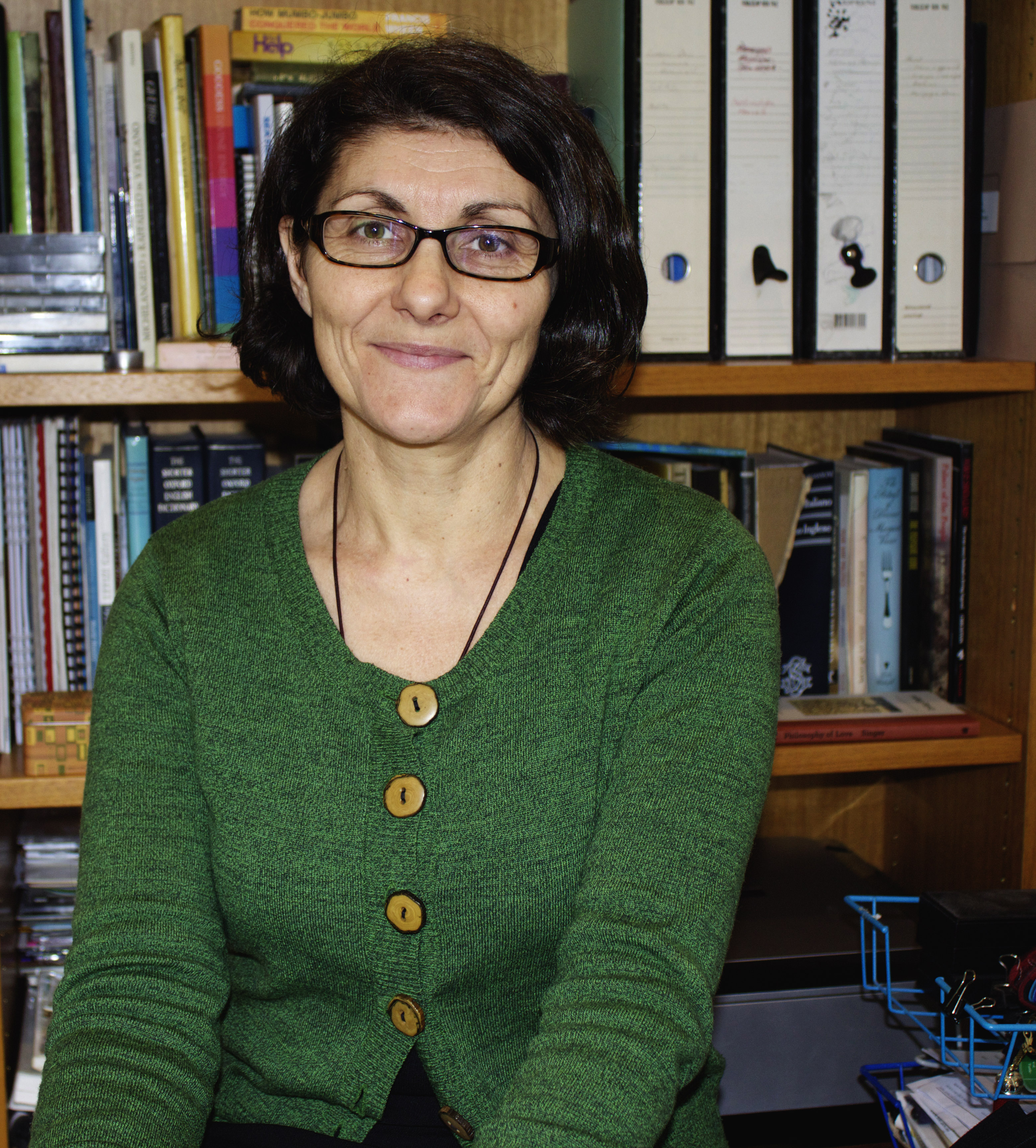Personal is Political: What’s in a Name?
By Renee G. Rivers
[T]hat which we call a rose / By any other name would smell as sweet…
–Shakespeare, Romeo and Juliet
 “How will you take his name and continue to teach? Teaching in the inner city is hard enough without dealing with that name.” Mom was right, but there were a lot of balls to juggle: finishing graduate school, finalizing the house deal, planning the wedding, interviewing for jobs, and yes, rearing its head in the middle of it all—the name.
“How will you take his name and continue to teach? Teaching in the inner city is hard enough without dealing with that name.” Mom was right, but there were a lot of balls to juggle: finishing graduate school, finalizing the house deal, planning the wedding, interviewing for jobs, and yes, rearing its head in the middle of it all—the name.
It would pop up as I walked across campus, haunt me as I surfed shock jock radio stations driving home, and dog me in class: “This week’s writing assignment, in the spirit of Henry Louis Gates, is: ‘What’s in a name?’” I wanted to bury my head. Hide under the table. After we talked about our writing projects in class, Doris, a returning student in her 60’s, spoke of how she loved her maiden name and felt she lost both a personal and ethnic identity by taking her husband’s. An early-thirties Gretchen hadn’t taken her husband’s name. She was sometimes at odds with this. Her children often asked, “Why can’t we be Robinson’s like you instead of Smith’s like dad?” As for my predicament, I kept my mouth zipped.
Meanwhile, my mother—the so-called traditionalist—called all semester: “Shouldn’t you keep your own name?” “You can convince him.” “You’ve hitchhiked across Europe. Aren’t you a feminist?” To further complicate things, my fiancé had months ago stipulated—half joking, half not—“No name. No wedding.”
What was I to do, other than grapple with the argument that had been brewing since my engagement over a year ago? So I grappled. The name? Well, it’s a common word. In fact, it’s a base word, a vile word, a curse word. Anyone passing through a public school hallway has heard it. Its utterance still produces a good schoolgirl singe on my face. The name is Dick. The word is dick. The word was slanged to death during my school days. It was so horrific to me, the only time I would say it was in association with classmates of that name—classmates who endured a gauntlet of teasing and unmentionable tacked-on nicknames.
After class, I stopped Doris, and told her I had appreciated her insights. “I’m having difficulty taking my husband’s name.” Looking around to make sure no one was in earshot, I said, “It’s Dick.”
Puzzled, Doris asked, “Well, why-whatever-on earth is wrong with that name?”
Gritting my teeth against the blush rising in my cheeks, I said, “It’s what Mr. Bobbit had cut off. D-I-C-K. Dick.”
“Dick? OH!! Dick!” Putting her hand to her mouth, Doris smiled and said, “My! I see what you mean.”
Even my ultra-conservative aunt had said, “Why, I don’t suppose you could even hyphenate that: ‘Renee Rivers-Dick?’” Admittedly, that was worse than not having my own name at all. I had to hand it to my aunt, though. I hadn’t even thought of that.
My name is my identity. I am “Renee G. Rivers.” I’ve published, written music, and performed at music festivals and on the radio under that name. My name fits the circumstances of me. And it has never failed to rise to that occasion. The name “Dick,” somehow ironically, promised to do just the opposite.
This name also limits what I can name my children and expect them to survive childhood. Using names of dead ancestors poses a particular problem. Our cherished family names of Hatta, Ayda, and Etta are far too suggestive to pair with Dick, and names like Marcus A. or Harry are out of the question. And yet, the fiancé is as proud as a peacock of that name. He even went twenty miles out of his way to a dentist because he had the same surname. As I write, the bill of one Dr. Dick, DDS mocks me from where it is taped to the monitor.
My fiancé loves his name. When he asked me why I wouldn’t take his name, I said, “Hey, how would you feel if I asked you to take my name?” He flared back that his was a good name—a name with a reputation, a name known and respected throughout Germany because of his father, Dr. Dick’s, work with DASA, Germany’s equivalent of NASA.
After months of contemplation, it struck me. Why not change this respected German name into its English equivalent? If Ellis Island did this to immigrants throughout history, we could do this for ourselves. Smiling all the way to the dictionary, I opened it to discover that this four-letter word in German had now become a three-letter word in English. The word?
FAT.
Perhaps it was time to return the wedding dress.
Author’s Note: Some twenty years after this was written, Renee Rivers still retains her maiden name (and memories of high school classmate John Wayne Bobbit). She has sturdy shoulders from all the laughing she does with her lovely, brave daughters at how they humorously navigate their childhood and teen years with the last name DICK!
_________________________________________________________
 Renee G. Rivers is a writing instructor, education activist, and traveler. Her interests find her wielding an acetylene torch, interviewing legislators, responding to student writing, or mapping adventures. She holds an M.A. in English from SUNY Brockport, a B.A. in Special Education, and a B.A. in German from the University of Alaska Fairbanks via the Goethe-Institut Muenchen. She teaches at Arizona State University. Renee’s publishing credits include stories in PBS Filmmaker Jillian Robinson’s Change Your Life Through Travel, Raising Arizona Kids, and Canyon Voices literary magazine. Her writings have garnered national and international awards from SouthWest Writers, SUNY, New Millennium Writings, and Tin House. She is at work on a memoir about how her family’s curious relationship with adventure propelled her into remote Alaska, where near-death adventures forced her to consider a different landscape. That of her own interior. As Renee accompanies her father to the Everest Base Camp this fall, follow her at unpackedwriter.com and tweet her @unpackedwriter.
Renee G. Rivers is a writing instructor, education activist, and traveler. Her interests find her wielding an acetylene torch, interviewing legislators, responding to student writing, or mapping adventures. She holds an M.A. in English from SUNY Brockport, a B.A. in Special Education, and a B.A. in German from the University of Alaska Fairbanks via the Goethe-Institut Muenchen. She teaches at Arizona State University. Renee’s publishing credits include stories in PBS Filmmaker Jillian Robinson’s Change Your Life Through Travel, Raising Arizona Kids, and Canyon Voices literary magazine. Her writings have garnered national and international awards from SouthWest Writers, SUNY, New Millennium Writings, and Tin House. She is at work on a memoir about how her family’s curious relationship with adventure propelled her into remote Alaska, where near-death adventures forced her to consider a different landscape. That of her own interior. As Renee accompanies her father to the Everest Base Camp this fall, follow her at unpackedwriter.com and tweet her @unpackedwriter.




5 Comments